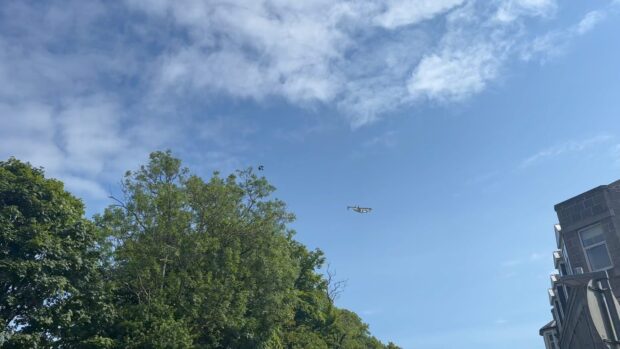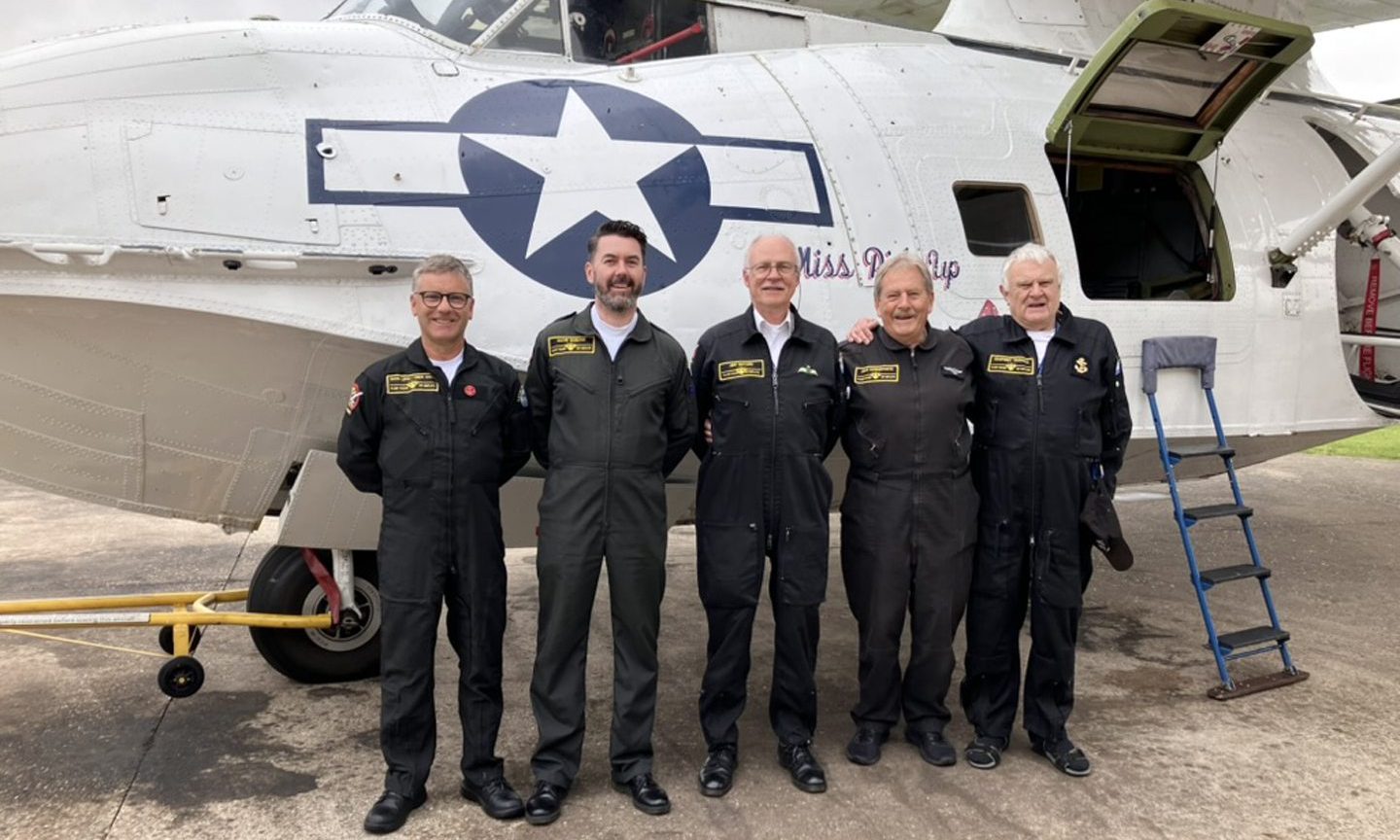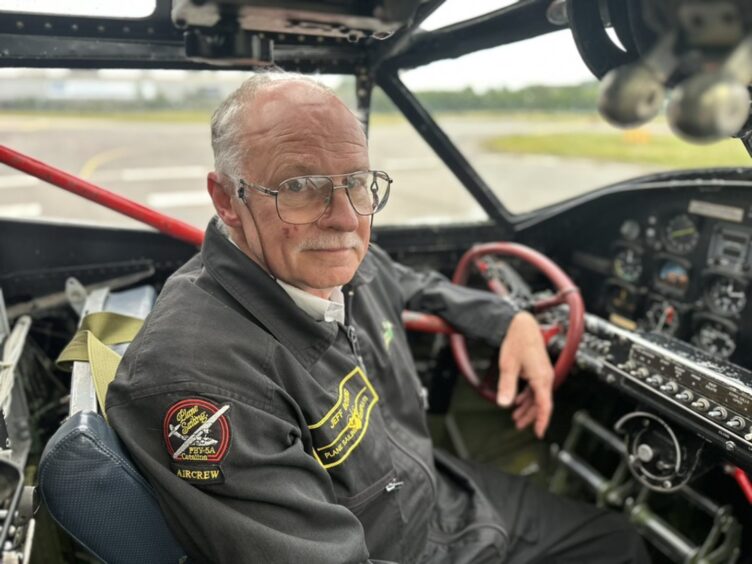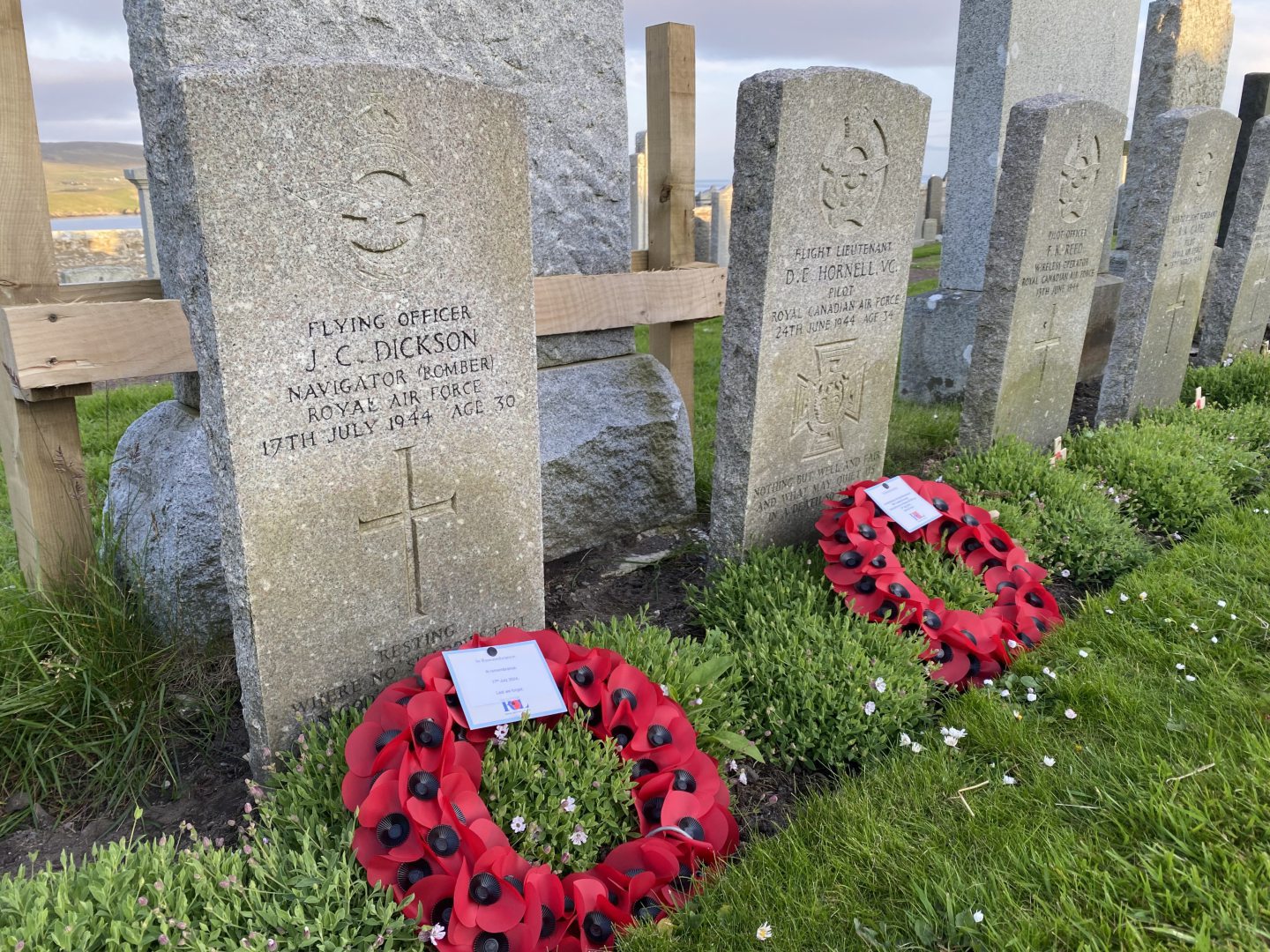A Second World War ‘flying boat’ has taken to the skies in honour of a 104-year-old Aberdeen pilot.
Locals across the north-east were treated to a rare sighting of a Catalina flying boat soaring over Aberdeen yesterday.
The flight formed part of a ceremonial flypast to honour the exceptional bravery of Flight Lieutenant John Cruickshank, Britain’s last surviving Victoria Cross holder.
Departing from the Imperial War Museum Duxford, the aircraft flew over various RAF Coastal Command bases before landing in Mr Cruikshank’s hometown of Aberdeen on Wednesday.
From there, the experienced crew headed north to Sumburgh Shetland to conduct a ceremonial flypast over both Lerwick New Cemetery and Sullom Voe.
The Catalina is currently stationed in Shetland as the crew waits for weather conditions to improve.
Flypast in honour of Victoria Cross recipients
The flight marks the first stage of a five-day journey across the UK to commemorate the 80th anniversary of two Victoria Crosses being awarded to Catalina Pilots.
The aircraft, owned by Catalina Aircraft Limited (CAL) and operated by Plane Sailing Air Displays Ltd (PSADL), is the only one in operation outside of America.
Highlanders will have the chance to catch a rare glimpse of the unique aircraft as it heads south, flying over RAF Coastal Command stations in Wick, Invergordon, Alness, Inverness and Oban before returning to Duxford.
The landmark flight was organised to mark the veteran’s heroic actions on July 17, 1944 as he flew a Catalina of 210 Squadron RAF out of Sullom Voe to sink a German U-boat.
During the operation, Flight Lieutenant Cruickshank – who was just 24 at the time – was injured more than 70 times as the navigator was killed.
Despite suffering serious lung injuries and 10 penetrating wounds to his lower limbs, he safely flew the aircraft back to Shetland.
Victoria Cross recipient dies following heroic flight
The second Victoria Cross was awarded to Flt Lt David Hornell for his heroic actions during the Second World War.
On June 24, 1944, the 162 Squadron Royal Canadian Air Force pilot took off from Wick alongside seven comrades onboard a Catalina on an anti-submarine patrol.
After almost 10 hours in the air, the crew spotted and attacked a German submarine, leaving their aircraft severely wounded and on fire.
Despite the desperate situation unfolding around them, Mr Cruickshank managed to land the aircraft on a heavy swell.
After more than 21 hours, the crew were rescued, however, the pilot died a short time later.
He was awarded the Victoria Cross in honour of his valour.




Conversation